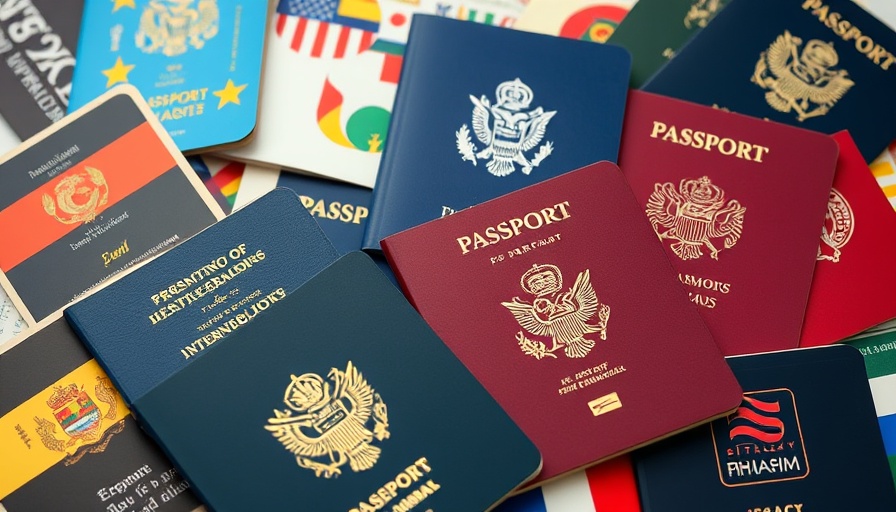
The Fall from Grace: U.S. Passport Power Explained
After two decades of pride, the U.S. passport has notably slipped from the prestigious ranks it once held. Dropping to joint 12th place on the Henley Passport Index, the current ranking is a stark reminder of a shifting landscape in global travel and diplomacy.
Why the U.S. Passport's Power Has Diminished
The decline of the American passport can be attributed to several factors: a growing isolationist sentiment, recent political policies, and reciprocal visa limitations. In the past, the U.S. boasted visa-free access to 182 countries in 2024, but this has now dwindled to just 180 countries, the same as Malaysia. Countries at the top of the index, like Singapore and South Korea, can access more than 190 destinations, showcasing a stark contrast in global mobility.
Global Dynamics and Traveling Freedom
Christian Kaelin, Chairman of Henley & Partners, articulated the deeper implications of this decline, noting that it reflects a “fundamental shift in global mobility and soft power dynamics.” Countries prioritizing openness and cooperation are gaining ground while the U.S. finds itself fenced in by restrictive policies and legislation. This decline signifies more than traveling limitations; it indicates a pivot in how nations view U.S. influence on the world stage.
The Impact of Isolationist Policies
Key analysts, including Annie Pforzheimer from the Center for Strategic and International Studies, have pointed to the U.S. government's move towards stricter immigration guidelines under previous administrations as a driving force behind this trend. With a decreased willingness to promote travel access for foreign nations, the U.S. has faced visa-reciprocity challenges, leading countries like Brazil to revoke visa-free privileges. The heightened complexities of securing U.S. visas have further added to the diminishing allure of American travel.
Future Implications for Travelers
As the global landscape rapidly evolves, likely repercussions for American travelers include increased restrictions and costs associated with international travel. Families and young professionals who thrive on discovery and exploration may find themselves navigating a more complex travel environment. The importance of understanding these dynamics is vital as travelers seek to maximize their experiences abroad.
Conclusion
In light of the recent passport rankings, it's essential to reflect on the broader implications of diplomatic strategies and travel policies. U.S. citizens are urged to stay informed and engaged with global travel trends as the landscape continues to shift. This knowledge will not only enhance their travel experiences but also inform them about the geopolitical context within which those experiences take place.
 Add Row
Add Row  Add
Add 




Write A Comment